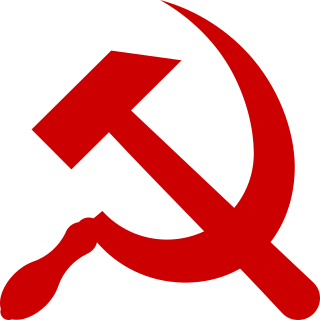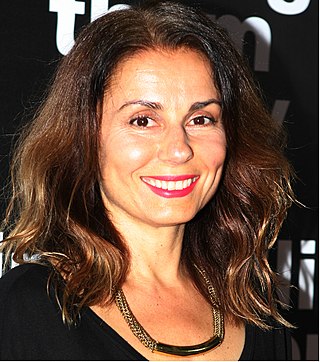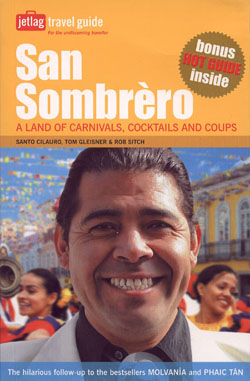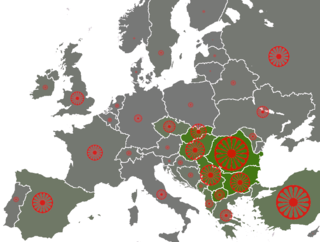Post-communism is the period of political and economic transformation or transition in post-Soviet states and other formerly communist states located in Central-Eastern Europe and parts of Latin America, Africa, and Asia, in which new governments aimed to create free market-oriented capitalist economies. In 1989–1992, communist party governance collapsed in most communist party-governed states. After severe hardships communist parties retained control in China, Cuba, Laos, North Korea, and Vietnam. SFR Yugoslavia began to disintegrate, which plunged the country into a long complex series of wars between ethnic groups and nation-states. Soviet-oriented communist movements collapsed in countries where they were not in control.

The Romani people, also known as the Roma, are an Indo-Aryan ethnic group who traditionally lived a nomadic, itinerant lifestyle. Linguistic and genetic evidence suggests that the Romani people originated in the Indian subcontinent, in particular the region of Rajasthan. Their first wave of westward migration is believed to have occurred sometime between the 5th and 11th centuries. They are thought to have first arrived in Europe sometime between the 9th and 14th centuries. Although they are widely dispersed, their most concentrated populations are believed to be in Bulgaria, Hungary, Romania, Serbia and Slovakia.

Xenophobia is the fear or dislike of anything that is perceived as being foreign or strange. It is an expression that is based on the perception that a conflict exists between an in-group and an out-group and it may manifest itself in suspicion of one group's activities by members of the other group, a desire to eliminate the presence of the group that is the target of suspicion, and fear of losing a national, ethnic, or racial identity.

Eastern Europe is a subregion of the European continent. As a largely ambiguous term, it has a wide range of geopolitical, geographical, ethnic, cultural, and socio-economic connotations. Its eastern boundary is marked by the Ural Mountains, whilst its western boundary is defined in various ways. Most definitions include the countries of Belarus, Russia, Ukraine, Moldova, and Romania while less restrictive definitions may also include some or all of the Balkans, the Baltic states, the Caucasus, and the Visegrád group.

The hammer and sickle is a communist symbol representing proletarian solidarity between agricultural and industrial workers. It was first adopted during the Russian Revolution at the end of World War I, the hammer representing workers and the sickle representing the peasants.

Thomas Edmund Gleisner is an Australian comedian, television presenter, producer, director, writer, occasional actor and author. Gleisner currently hosts Network 10's Have You Been Paying Attention?.
Santo Luigi Cilauro is an Australian comedian, television and feature film producer, screenwriter, actor, author and cameraman who is also a co-founder of The D-Generation. Known as the weatherman in Frontline, he is also an author and former radio presenter on Triple M, and achieved worldwide fame with the viral video Elektronik Supersonik.

The term Greater Romania usually refers to the borders of the Kingdom of Romania in the interwar period, achieved after the Great Union. It also refers to a pan-nationalist idea.

Phaic Tăn is a 2004 parody travel guidebook examining imaginary country Phaic Tăn. The book was written by Australians Tom Gleisner, Santo Cilauro, and Rob Sitch. Along with the other Jetlag Travel volumes, 2003's Molvanîa and 2006's San Sombrèro, the book parodies both the language of heritage tourism and the legacy of colonialism and imperialism.
The D-Generation was a popular and influential Australian TV sketch comedy show produced and broadcast by ABC for two series between 1986 and 1987. A further four specials were broadcast on the Seven Network between 1988 and 1989. The show would also serve as a stepping stone for many early incarnations of iconic characters, including Lynne Postlethwaite, Gina Hard-Faced B***h, Eileen Maverick and Kelvin Cunnington.
Boyash or Bayash are a Romani ethnic group living in Romania, Moldova, southern Hungary, northern Croatia, northern Serbia, Slovakia, the Balkans, but also in the Americas. Alternative names are Rudari (Ludari), Lingurari and Zlătari.

Mary Coustas is an Australian actress, comedian and television personality and writer. Originally from Melbourne, Coustas often performs as the character "Effie", a stereotypical second-generation Greek Australian prone to malapropisms. She completed a Bachelor of Arts at Deakin University in Melbourne, majoring in performing arts and sub-majoring in journalism.

Moldovenism is a term used to describe the political support and promotion of a Moldovan identity and culture, including a Moldovan language, independent from those of any other ethnic group, the Romanians in particular. It is primarily used as a pejorative by the opponents of such ideas as part of the wider controversy over ethnic and linguistic identity in Moldova.

Romani people in Romania, locally and pejoratively referred to as the Țigani, constitute the second largest ethnic minority in the country. According to the 2021 census, their number was 569,477 people and 3.4% of the total population. The size of the total population of people with Romani ancestry in Romania is even more, with different estimates varying from 4.6 percent to over 10 percent of the population, because many people of Romani descent do not declare themselves Roma. For example, in 2007 the Council of Europe estimated that approximately 1.85 million Roma lived in Romania, based on an average between the lowest estimate and the highest estimate available at the time. This figure is equivalent to 8.32% of the population. On the other hand, less than half are native speakers of the Romani language.

San Sombrèro is a parody travel guide book examining the eponymous fictional country, described as the birthplace of tinted sunglasses and sequins. This country is set in Central America, and was created by Australian comedic writers Tom Gleisner, Santo Cilauro and Rob Sitch. Along with the other Jetlag Travel volumes, 2003's Molvanîa and 2004's Phaic Tăn, the book parodies both the language of heritage tourism and the legacy of colonialism and imperialism.

Anti-Romani sentiment is an ideology which consists of hostility, prejudice, discrimination, racism and xenophobia which is specifically directed at Romani people. Non-Romani itinerant groups in Europe such as the Yenish, Irish and Highland Travellers are frequently given the name "gypsy" and as a result, they are frequently confused with the Romani people. As a result, sentiments which were originally directed at the Romani people are also directed at other traveler groups and they are frequently referred to as "antigypsy" sentiments.
Anti-Romanian sentiment, also known as Romanophobia is hostility, hatred towards, or prejudice against Romanians as an ethnic, linguistic, religious, or perceived ethnic group, and it can range from personal feelings of hatred to institutionalized, violent persecution.

The Romani diaspora refers to the presence and dispersion of Romani people across various parts of the world. Their migration out of the Indian subcontinent occurred in waves, with the first estimated to have taken place in the 6th century. They are believed to have first arrived in Europe sometime between the 9th and 14th centuries, via the Balkans. They settled in the areas of present-day Turkey, Greece, Serbia, Romania, Croatia, Moldova, Bulgaria, North Macedonia, Hungary, Albania, Kosovo, Montenegro, Bosnia and Herzegovina, Czech Republic, Slovenia and Slovakia, by order of volume, and Spain. From the Balkans, they migrated throughout Europe and, in the 19th and later centuries, to the Americas. The Roma population in the United States is estimated at more than one million.

Romanian nationalism is a form of nationalism that asserts that Romanians are a nation and promotes the identity and cultural unity of Romanians. Its extremist variation is Romanian ultranationalism.

A controversy exists over the national identity and name of the native language of the main ethnic group in Moldova. The issue more frequently disputed is whether Moldovans constitute a subgroup of Romanians or a separate ethnic group. While there is wide agreement about the existence of a common language, the controversy persists about the use of the term "Moldovan language" in certain political contexts.
















